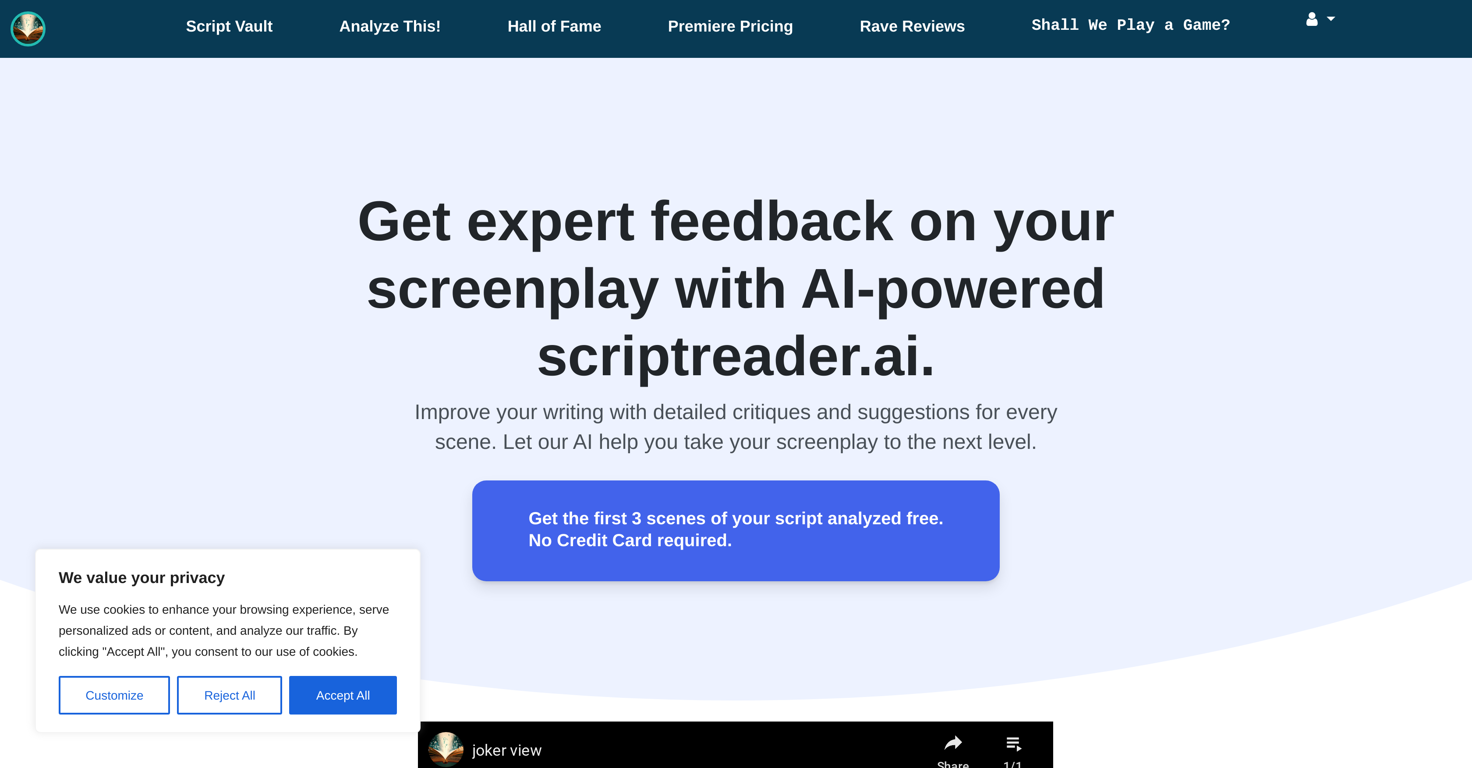AI vs. Human: The Battle for Script Feedback Supremacy
Hollywood script readers test AI's ability to provide script feedback, revealing the irreplaceable value of human insight in storytelling.

Hollywood Script Readers Challenge AI: A Test to Determine Who Gives Better Feedback
Hollywood script readers, the often-unsung gatekeepers of film and television storytelling, are increasingly concerned about the threat posed by artificial intelligence technologies capable of analyzing scripts. In response, a group of professional script readers recently organized an experiment to compare the quality of feedback given by humans versus AI, aiming to assess whether AI could indeed replace their nuanced, creative role in the industry.
The Growing AI Presence in Hollywood Script Analysis
AI-powered tools for script analysis have surged in popularity over the past few years, promising rapid, affordable feedback on story structure, pacing, and dialogue. These systems, such as ScriptReader.ai, use natural language processing to scan scripts for common issues like plot holes, inconsistent character motivations, or formatting errors. According to market research, the script analysis AI sector was valued at $1.24 billion in 2024 and is expected to grow to nearly $10 billion by 2033, reflecting the industry's growing appetite for AI-assisted workflows.
Despite these advances, AI is still limited in its ability to interpret the emotional depth, thematic resonance, and cultural context of a screenplay—elements that human readers excel at. Human script readers bring an intuitive understanding of storytelling, audience expectations, and market trends that AI currently cannot replicate. For example, a human can identify why a joke falls flat or whether a character's motivation rings true, whereas AI tends to focus on structural and linguistic patterns.
The Test: Human Readers vs. AI Feedback
In an effort to quantify the value of human insight over AI, a group of Hollywood script readers organized a blind test. They submitted the same scripts to both professional human readers and AI tools, then compared the resulting coverage reports. The goal was to determine which feedback was more actionable, insightful, and artistically valuable.
Preliminary results showed that while AI feedback was faster and cheaper, it lacked the nuanced understanding required to shape a screenplay’s emotional and thematic impact. Human readers provided more detailed notes on character development, tone, and audience engagement. This reinforced the emerging consensus in Hollywood that AI should be viewed as a co-pilot rather than a captain in the creative process.
Industry Perspectives on AI’s Role in Screenwriting
The rise of AI in Hollywood has sparked debate about the future of storytelling professions. Many view AI as a tool to augment human creativity, handling tedious analytical tasks so writers and readers can focus on the heart of narrative art—emotion, voice, and theme. The democratization potential of AI is also notable; it could provide emerging writers without industry connections access to affordable, instant feedback, leveling the playing field.
However, the fear among script readers and industry professionals is palpable. There is concern that studios and production companies might prioritize cost-saving AI solutions over human expertise, potentially lowering the quality of script evaluation. The test conducted by script readers is a proactive attempt to prove that human judgment remains indispensable.
Broader Implications: AI Beyond Script Reading
AI’s influence in Hollywood extends well beyond script analysis. Studios are increasingly using AI for de-aging actors, generating digital doubles, and even creating synthetic performances, raising ethical and economic questions. While these technologies offer cost efficiencies and creative possibilities, they also pose risks to jobs traditionally held by human artists.
For script readers, the challenge is clear: to demonstrate the irreplaceable value of human insight in storytelling while embracing AI as a complementary tool. As one industry commentator put it, the future is likely one where AI enhances, not replaces, human creativity.
Visual Elements for the Story
- ScriptReader.ai interface screenshots displaying AI script feedback reports to illustrate the technology being tested.
- Photographs or headshots of professional Hollywood script readers involved in the test.
- Infographics showing the growth projections of the AI script analysis market.
- Images from recent Hollywood AI applications, such as digital de-aging or AI-assisted screenwriting tools, to contextualize AI’s broader role.
Hollywood’s script readers are standing at a crossroads where technology challenges tradition. Their recent test highlights the continuing importance of human creativity and intuition in a world increasingly influenced by AI. As the industry adapts, the balance between man and machine will define the future of storytelling.



